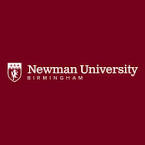Choosing to study a PGCE in Primary Education is your first step to inspiring children in learning about their world, and at Birmingham Newman University, we would love to support you in joining the profession.

PGCE Primary Education 3-11
Choosing to study a PGCE in Primary Education is your first step to inspiring children in learning about their world, and at Birmingham Newman University, we would love to support you in joining the profession.
We understand that the Primary 3-11 age range is a crucial time for children’s development and learning. It is at this formative and particularly receptive stage of development that attitudes towards learning are formed, attitudes that will impact future life course development.
The PGCE Primary (3-11) is designed to prepare you for teaching across the Primary age range. There are three modules developed to support your knowledge and understanding of theory, policy and practice, including the Early Years, National Curriculum and SEND frameworks.
For those wishing to work within Catholic schools, or who wish to develop their understanding of Religious education, there is also the opportunity to undertake the Catholic Certificate in Religious Studies (CCRS) – see Additional Information for details.
Full time route:
Two level 7 modules are linked to children’s learning and development as well as curriculum, assessment and pedagogy and you will study these consecutively in the first and second term.
The final training module, studied across all three school terms, enables you to observe, reflect on and then undertake the role of the teacher in the Primary phase. The course will enable you to meet the requirements for Qualified Teacher Status (QTS).
Part time route:
Two level 7 modules are linked to children’s learning and development as well as curriculum, assessment and pedagogy. One level 7 module will be completed in year 1 of study. The second level 7 module will be completed in year 2 of study.
The final training module, studied across both years of study, enables you to observe, reflect on and then undertake the role of the teacher in the Primary phase. The course will enable you to meet the requirements for Qualified Teacher Status (QTS).What does the course cover?
All PGCE Primary 3-11 students at Birmingham Newman University study the same mandatory core module. The second level 7 module you will study is dependent on your chosen age phase (3-7, 5-11 or 7-11) and training route: guidance will be provided on enrolment to ensure you are registered on the correct module.
You will learn the principles of curriculum design and delivery, and theories of learning and teaching, alongside developing practical insights and skills in the effective teaching and assessment of young children.
You will study three modules: two level 7 modules, worth 30 credits each, and a non-credit bearing professional module which includes university-training and work-related experience in school settings.
School-based training is central to the PGCE programme. You undertake placements in at least two primary schools, providing opportunities to observe and practise a range of methods and approaches. Over the course of the programme you will spend at least 120 days in school split into block placements.
Full time students will attend placements in all three terms of your PGCE year. Part time students will complete one block placement in year one and two block placements during the second year of study.
School-based learning includes observation of experienced teachers, a structured programme of group and whole class teaching and a series of directed activities to explore wider school issues.
In order to support your professional development, this work-related study is organised into three stages: Understanding Professional Practice, Managing the Classroom and Meeting the Teachers’ Standards. Each stage supports your transition from trainee to Early Career Teacher through clear guidance and shared expectations
Modules
Achieving QTS through professional studies
Theory and practice of learning and teaching
Contemporary, creative and innovative practice in the National Curriculum 5-11
Enquiry based learning in the Early Years 3-7
Our Values
• We champion the Catholic tradition of social justice that respects the dignity and worth of each individual, contributes to and promotes the common good and seeks to exercise the preferential option for the poor, especially in their access to higher education.
• We strive for quality in all we do and set the standard for others to follow.
• We nurture and celebrate individual and collective success and consistently seek ways to improve all we do.
• We recognise the power of community and building relationships that help us excel.
• We respect and value all contributions, recognising that we are a single community, inspired and united by our shared vision and mission.
• People are at the centre of all we do. In difficult situations we seek to work with understanding, kindness and resilience.
• We are ethical, honest and steward our resources well.
• We honour our commitments and we challenge others to do the same.
• We trust people to act within their areas of responsibility and be accountable for their actions.
Mission
To serve our communities by making high quality education accessible to all who are able to benefit from it and to deliver research and scholarship that has a positive impact on society
Vision
To be a University of growing academic distinction that continually enhances its sense of community based on Catholic values.
© 2025 coursetakers.com All Rights Reserved. Terms and Conditions of use | Privacy Policy